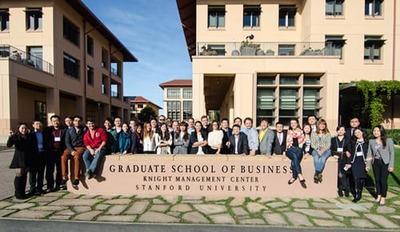Attendance Management In UK
Attendance Management is an essential component of operational efficiency, especially in the United Kingdom (UK), where rising expectations for productivity, responsibility, and compliance are being placed on enterprises and institutions. It is not enough to just keep track of who is there; effective attendance management also involves the creation of an organized environment that allows for the optimization of resources, the guarantee of legal compliance, and the promotion of a healthy culture in the workplace.
The relevance of attendance management in the United Kingdom will be investigated in this article, along with its ramifications for various organizations, including enterprises, educational institutions, and other types of establishments. In addition to this, we will investigate the tools and methods that may improve attendance monitoring and guarantee that it is in line with the requirements of modern organizations.
Attendance Management in the Workplace
Within the context of the workplace, the management of attendance is an essential component in the process of preserving operational efficiency. Having a precise record of employee attendance ensures that work schedules are streamlined, payroll is correct, and productivity levels are maintained. This is a significant benefit for organizations.
It is possible for absence and tardiness to have major financial repercussions in the United Kingdom. According to a research published by the Chartered Institute of Personnel and Development (CIPD), firms in the United Kingdom suffer yearly losses of billions of pounds as a result of absentee labour. These losses are often the consequence of unforeseen absences, which cause processes to be disrupted and increase the amount of work that is due to workers who are already employed.
Moreover, effective attendance management ensures compliance with UK labor laws, such as the Working Time Regulations. Employers are required to maintain accurate records of employees’ working hours, breaks, and overtime. Failing to do so can lead to legal complications and reputational damage. Attendance tracking tools, such as biometric systems and cloud-based software, help organizations meet these requirements while reducing administrative burdens.
Attendance Management in Educational Institutions
Educational institutions in the UK face unique challenges in attendance management. Regular attendance is critical for academic success, as it fosters discipline, consistency, and a strong work ethic among students. The UK government has stringent policies to address absenteeism in schools. Parents are legally obligated to ensure their children attend school regularly, and schools are required to monitor and report absenteeism to local authorities.
Persistent absenteeism is a major concern, as it can lead to lower academic performance and increased dropout rates. Schools use attendance management systems to keep track of students and identify patterns of absenteeism. These systems allow educators to intervene early and provide support to students who may be struggling with personal or academic issues.
Digital attendance tracking solutions, such as apps and web portals, have revolutionized the way schools manage attendance. They enable real-time monitoring and foster better communication between parents, teachers, and school administrators. With the use of these tools, schools can focus more on creating an engaging learning environment and less on administrative tasks.
Legal and Regulatory Compliance
In the UK, attendance management is intertwined with legal and regulatory requirements. Employers and educational institutions are bound by laws that mandate accurate record-keeping of attendance and working hours. For instance, under the Employment Rights Act 1996, employers must maintain proper records of an employee’s working hours, including any overtime worked.
Concerning the field of education, the Education Act of 1996 mandates that parents are responsible for ensuring that their children attend school on a consistent basis. Attendance must be recorded in schools, and teachers are required to report instances of chronic absence to the appropriate authorities. All parties involved, including parents and schools, may be subject to sanctions if they fail to comply with these requirements.
Utilizing attendance management systems is a viable option for both schools and employers in order to fulfill these compliance standards. A common aspect of these kinds of systems is the incorporation of automatic reporting capabilities, which simplify the process of generating and storing data for audits and inspections. In addition to shielding companies from the possibility of facing legal ramifications, compliance also helps to develop confidence and credibility in the company.
Promoting a Positive Workplace Culture
The management of attendance helps to contribute to the development of a pleasant culture in the workplace. When workers arrive on time and maintain a consistent attendance record, it establishes a feeling of dependability and professionalism in the workplace. Absenteeism on a regular basis, on the other hand, may drain the motivation of other workers and put a strain on relationships within the office.
Effective attendance management helps strike a balance between flexibility and responsibility in the United Kingdom, where flexible working arrangements are becoming more prevalent. Utilizing attendance data, employers are able to see trends and take preventative measures to solve problems. In the event that an employee is habitually tardy owing to the fact that they are responsible for childcare, for instance, the employer may consider implementing flexible working hours as a remedy.
In addition, attendance rules that are open and accessible foster fairness and help to avoid disagreements. There is a higher likelihood that workers will adhere to corporate rules when they are aware of the significance of attendance and the repercussions that come with failing to comply with the regulations. Not only does this improve morale, but also contributes to an increase in total production.
The Role of Technology in Attendance Management
Because to technological advancements, the method of controlling attendance has been changed, and as a result, it has become more accurate and efficient. Digital technologies are becoming more popular among businesses and educational institutions in the United Kingdom as a means of accelerating the processes that are involved in monitoring attendance.
It is possible to remove the possibility of time theft and ensure that attendance records are accurate by using biometric technology, which include fingerprint scanners and facial recognition capabilities. These systems are particularly beneficial for businesses that have a large number of employees since they reduce the amount of time that is spent manually keeping records. This benefits businesses that have a large workforce.
Cloud-based attendance management software has also gained popularity due to its scalability and accessibility. These systems allow organizations to track attendance in real-time, generate detailed reports, and integrate data with other HR or administrative tools. Mobile apps further enhance accessibility, enabling employees and students to mark attendance remotely, where applicable.
The use of Artificial Intelligence (AI) and analytics in attendance management is another emerging trend. AI-powered tools can analyze attendance data to identify patterns and provide insights into employee or student behavior. For instance, they can highlight instances of recurring absenteeism or predict potential burnout among employees. These insights enable organizations to take preventive measures and create a more supportive environment.
Challenges in Attendance Management
Attendance management is not without its difficulties, despite the fact that it is quite important. This reluctance to change is one of the most significant challenges that businesses in the UK must contend with. Attendance monitoring may be seen as invasive by many individuals, including employees and students, especially when biometric technology are included. Clearly communicating the objective of attendance management as well as the advantages it offers is necessary for firms to overcome this challenge.
One further obstacle is protecting the confidentiality and security of the data. Attendance systems often acquire sensitive personal information, which is required to be secured in accordance with the General Data Protection Regulation (UK GDPR) in the United Kingdom. Investing in secure technologies and ensuring that their data management methods are in accordance with these standards are both requirements that organizations must fulfill.
Problems with connection or system breakdowns are examples of technical concerns that may potentially cause disruptions to the procedures involved in attendance management. Maintaining and updating attendance systems on a regular basis is very necessary in order to guarantee their dependability. Also, organizations must to have backup plans in place in order to deal with any unanticipated technological problems that may arise.
Conclusion
The management of attendance is a crucial component of operational success in the United Kingdom. It encompasses legal compliance, business productivity, and educational efficiency. It is possible for organizations to overcome the difficulties that are connected with monitoring attendance if they make use of contemporary technology and cultivate a culture of responsibility.
It will be necessary for attendance management systems to be able to accommodate new needs and expectations as the work and educational environments of the United Kingdom continue to undergo transformations. It is through actions such as these that they will continue to be an indispensable instrument for fostering efficiency, compliance, and a pleasant atmosphere in workplaces and institutions.

